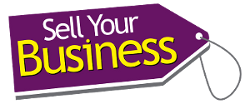
The Sale Process Stages & Best Time To Sell A Business
The Sale Process Stages
Most businesses are for sale if the price is right. When someone asks, ‘Is your business for sale?’ I recommend you say yes. It doesn’t cost you anything, and it keeps the opportunity open for further exploration.
(Note: This is in excerpt from Chapter 1 of “How To Sell A Business: The UK’s #1 guide to maximising your company value and achieving a quick business sale.” Get the whole chapter for free by filing out the form to your right)
Exploring opportunities is one thing; entering into the business sale process is another. You definitely don’t want to go into it lightly. The process is costly and mentally and physically draining. It’s not an activity to enter half-heartedly by either the seller or the buyer. A high level of commitment is necessary from all parties.
The actual sale process may be longer than you think, and it involves a number of stages in order to maximise your valuation. The stages are as follows:
- Making the decision to sell
- Preparing your business for sale
- Getting the right business sale team in place
- Going to market to find a buyer
- Carrying out successful due diligence
- Completion Day and the after-party
- Communicating the successful sale to the market
When is the best time to sell a business
In an ideal world, the best time to sell a business is when your business is on the up-and-up, still growing with a strong order book, running efficiently, managed effectively, and the going is good. The trick is to recognise this point as it approaches, and make the most of the window of opportunity when it arrives. My business partner and I always looked out for this window, and our indicators were our scarcity in the market, the number of clients with which we had contracts, the volume we were processing, and forecasting over the next few years. Even though we recognised the window of opportunity when it came along, we were a little late. This was partly because the business was going really well and everyone was enjoying themselves, and partly because our business sale process took longer than we expected.
The indicators for your business are likely to be different, taking a number of different factors into account, such as scarcity of your product and services in the market, the market size, future opportunity, profit margins (are they growing or shrinking?), and where your business is in the market cycle. It could even be that you have gone to see some venture capitalist (VC) companies who told you that you need a larger order book.
TIP: To make sure you don’t miss the boat, define the indicators to look out for, which show when the best time to sell is approaching. Make sure this is checked regularly, so have it as an agenda item at your board meetings.
If you are in a market cycle that doesn’t have a ‘best time to sell’ period coming up for the foreseeable future, it could still be the perfect time to sell. Just remember to choose your ‘ready to sale’ point very carefully by taking the calendar into consideration (more details in Part Five of the book — When should we go out to market?).
Joanna Miller helps business owners navigate their way through the start to finish process of selling a business. Her specialty is helping owners understand how to prepare and make the most of their business sale process to maximise their company’s value. To understand how you can sell your business quickly for the highest sales price, purchase her book, “How To Sell A Business: The #1 guide to maximising your company value and achieving a quick business sale”
